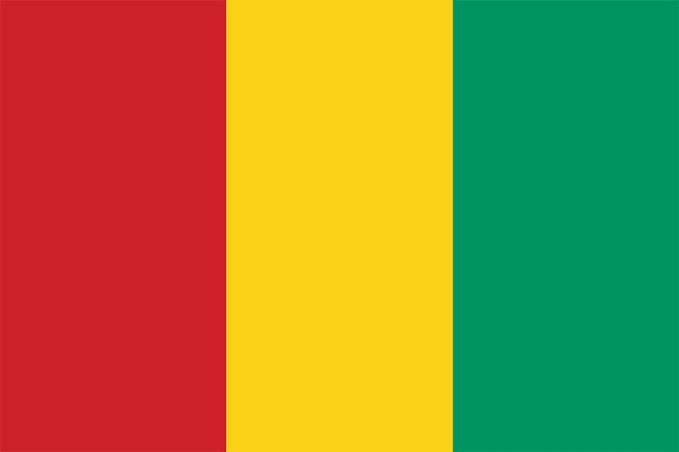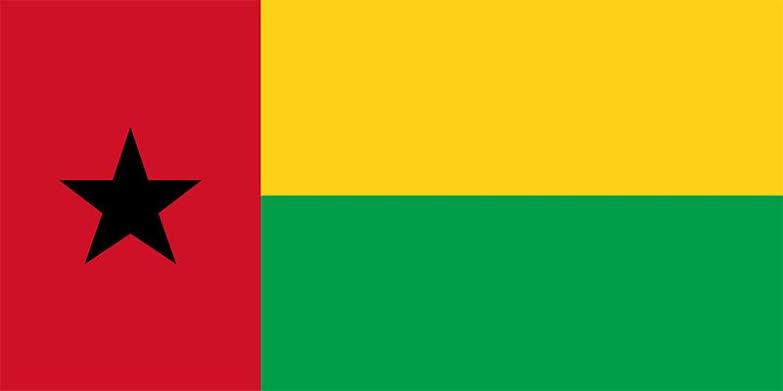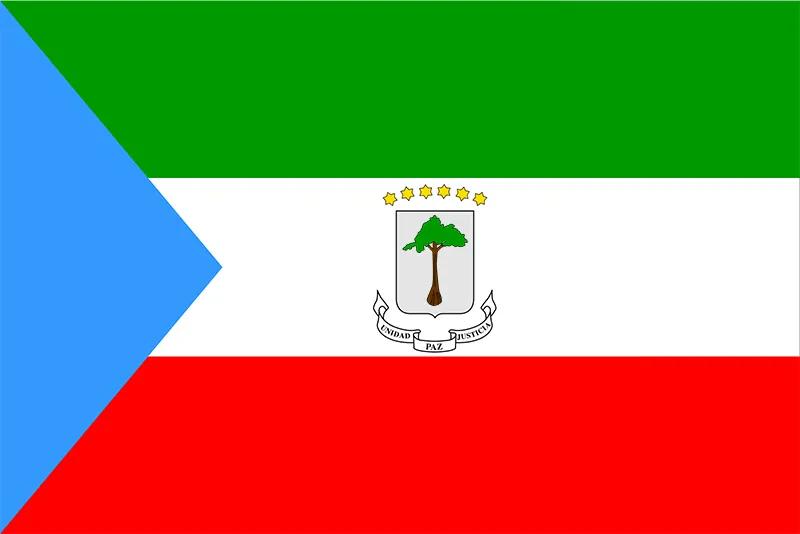Have you ever wondered about the difference between Guinea Conakry, Guinea Bissau, and Equatorial Guinea?
Although their names may appear similar, these countries are unique in their own right. In this article, we will take a closer look at each of these African countries, unraveling their geographical locations, political systems, languages spoken, and more.
By the end, you will have gained a comprehensive understanding of Guinea Conakry, Guinea Bissau, and Equatorial Guinea, allowing you to appreciate the diverse tapestry of our world.
Let’s embark on this enlightening journey together as we delve into the fascinating aspects that set these countries apart.
Prepare to expand your knowledge and discover the captivating stories that lie within Guinea Conakry, Guinea Bissau, and Equatorial Guinea.
Guinea Conakry, situated in West Africa, graces the Atlantic Ocean to the west. This vibrant country is known for its rich musical heritage and lively traditions.
Stepping into its capital, Conakry, you’ll be immersed in a bustling metropolis that showcases a blend of modernity and traditional influences.
On the other hand, we travel to Guinea Bissau, a small nation nestled between Senegal and Guinea Conakry.
Picture-perfect beaches, lush landscapes, and abundant wildlife characterize this enchanting country.
While Guinea Bissau faces its share of socio-economic challenges, it remains resilient, celebrating a unique blend of African and Portuguese influences in its cuisine, music, and architecture.
Our journey ends with Equatorial Guinea, located on the western coast of Central Africa. Split between the mainland region of Rio Muni and the volcanic islands of Bioko and Annobón, Equatorial Guinea presents a fascinating blend of natural wonders and modern development.
Boasting abundant oil resources and a growing economy, this country has undergone significant transformations while preserving its indigenous cultures and languages.
Guinea Conakry, Guinea Bissau, and Equatorial Guinea may sound similar, but they are three distinct countries with their own unique characteristics which will be expanded on later in this article.
By the end, you’ll have a clear understanding of Guinea Conakry, Guinea Bissau, and Equatorial Guinea, and how they each have their own identities.
Now, let’s begin our journey of discovery in these fascinating countries.
Guinea Conakry
Guinea, officially known as the Republic of Guinea, is a coastal country located in West Africa.

It shares borders with Guinea-Bissau, Senegal, Mali, Cote d’Ivoire, Sierra Leone, and Liberia, with the Atlantic Ocean to its west.
The capital city is Conakry, giving rise to the name Guinea-Conakry to distinguish it from other regions with similar names.
Formerly a French colony, Guinea gained independence in 1958. However, the country has experienced a history of military coups.
In 2010, Guinea held its first democratic election after years of authoritarian rule. Nevertheless, challenges such as ethnic conflicts, corruption, and human rights abuses persisted.
The population of Guinea is around 13.5 million, occupying an area of approximately 245,857 square kilometers.
Islam is the predominant religion, embraced by 85% of the population. The country is geographically divided into four regions: Maritime Guinea along the coast, the Fouta Djallon highlands in the middle, the Upper Guinea savanna region in the northeast, and the Guinée forestière region characterized by tropical forests.
French serves as the official language and is widely used in education, government, and media.
However, there are over 24 indigenous languages spoken in Guinea, with Susu, Pular, and Maninka being the most prominent in their respective regions.
Guinea’s economy relies heavily on agriculture and mineral production. It is a major global producer of bauxite, along with significant deposits of diamonds and gold.
Guinea derives its name from the Guinea region, which extends from the Gulf of Guinea through forested tropical areas to the Sahel.
The term “Guinea” originated from the Portuguese word “Guiné” in the 15th century, referring to the lands inhabited by black African peoples south of the Senegal River.
Guinea-Bissau
Guinea-Bissau, officially known as the Republic of Guinea-Bissau, is a country located in West Africa.

It has an area of approximately 36,125 square kilometers and an estimated population of 2,026,778. The country shares borders with Senegal to the north and Guinea to the southeast.
Throughout history, Guinea-Bissau was part of the Kaabu kingdom and later became part of the Mali Empire.
Portuguese colonization began in the 16th century, and the region was known as Portuguese Guinea.
Portuguese control over the area was solidified through pacification campaigns in the early 20th century.
The remaining resistance was overcome in 1915, establishing Portuguese sovereignty over the mainland and the Bissagos islands in 1936.
Guinea-Bissau declared independence in 1973, which was recognized the following year. To avoid confusion with Guinea (formerly French Guinea), the country’s capital, Bissau, was added to its name.
However, Guinea-Bissau has experienced political instability since gaining independence, with only one elected president serving a full five-year term.
Portuguese is the official language of Guinea-Bissau, but only about 2% of the population speaks it as a first language.
Guinea-Bissau Creole, a Portuguese-based Creole language, is the national language and serves as a unifying language.
Islam, Christianity, and traditional African religions are practiced in the country. Guinea-Bissau has a low per-capita gross domestic product (GDP) compared to other nations.
Guinea-Bissau is a member of various international organizations, including the United Nations, African Union, Economic Community of West African States, and Organisation of Islamic Cooperation. It was also a member of the now-defunct Latin Union.
Equatorial Guinea
Equatorial Guinea, officially known as the Republic of Equatorial Guinea, is a country situated in Central Africa.

It derives its name from its proximity to the Equator, the imaginary line dividing the Earth into northern and southern hemispheres.
Formerly known as Spanish Guinea, it achieved independence on October 12, 1968. The country’s capital is Malabo.
In terms of both size (covering an area of 10,830 square miles) and population (approximately 1.403 million people), Equatorial Guinea is the smallest among the countries bearing the name “Guinea.”
It covers an area of 28,000 square kilometers. Formerly known as Spanish Guinea, the country gets its name from its location near the Equator and its association with the African region of Guinea.
As of 2021, Equatorial Guinea had a population of 1,468,777, with the majority belonging to the Fang ethnic group.
The country is divided into two regions: the insular region and the mainland region. The insular region comprises the islands of Bioko (formerly Fernando Pó) and Annobón.
Bioko Island, the northernmost part of Equatorial Guinea, is home to the capital city, Malabo.
The mainland region, known as Río Muni, shares borders with Cameroon to the north and Gabon to the south and east.
Bata, the country’s second-largest city, is located in Río Muni. Equatorial Guinea is a member of the African Union, Francophonie, OPEC, and the CPLP.
Equatorial Guinea gained independence from Spain in 1968 but has since been ruled by President Teodoro Obiang Nguema Mbasogo, who came to power in a coup in 1979.
The country has become one of the largest oil producers in sub-Saharan Africa since the mid-1990s, making it the richest country per capita on the continent.
However, the wealth distribution is highly unequal, with only a few individuals benefiting from the oil resources.
Equatorial Guinea’s official languages are Spanish, French, and Portuguese, with Spanish being the most widely spoken.
The Fang people make up the majority of the population, followed by the Bubi people, who are indigenous to Bioko Island.
The government of Equatorial Guinea has been criticized for its authoritarian rule and poor human rights record.
Also read: President of Equatorial Guinea, Obiang, Re-Elected For Sixth Term
It consistently ranks among the lowest in terms of political and civil rights. The country also faces challenges related to human trafficking, with efforts being made to address the issue.
The Gulf of Guinea
The Gulf of Guinea is a vast and diverse region in the Atlantic Ocean, stretching approximately 6000 km along the coastline from Senegal to Angola.
It serves as a crucial shipping zone for transporting oil, gas, and goods to and from Central and Southern Africa.
However, the Gulf of Guinea is also notorious for its dangers, particularly for sailors, as it has witnessed a high number of kidnappings at sea in recent years. To combat piracy in the coastal region, a US Navy ship joined the efforts last year.
The countries surrounding the Gulf of Guinea include Liberia, Ivory Coast, Ghana, Togo, Benin, Nigeria, Cameroon, Equatorial Guinea, Gabon, São Tomé and Príncipe, Republic of Congo, Democratic Republic of Congo, and Angola.
Conclusion
In summary, Guinea Conakry, Guinea Bissau, and Equatorial Guinea, although sharing similar names, are distinguished by their geographical locations, cultural traditions, and unique characteristics.
Guinea Conakry is famous for its music and lively traditions. Guinea Bissau has beautiful beaches, lush landscapes, and a mix of African and Portuguese influences.
Equatorial Guinea has amazing nature, a growing economy, and respects its own cultures. Each country has its own unique things to offer, showing how diverse and interesting our world is.
Understanding the differences between these three nations not only clears the confusion but also allows us to appreciate their unique contributions to the African continent and the world at large.
